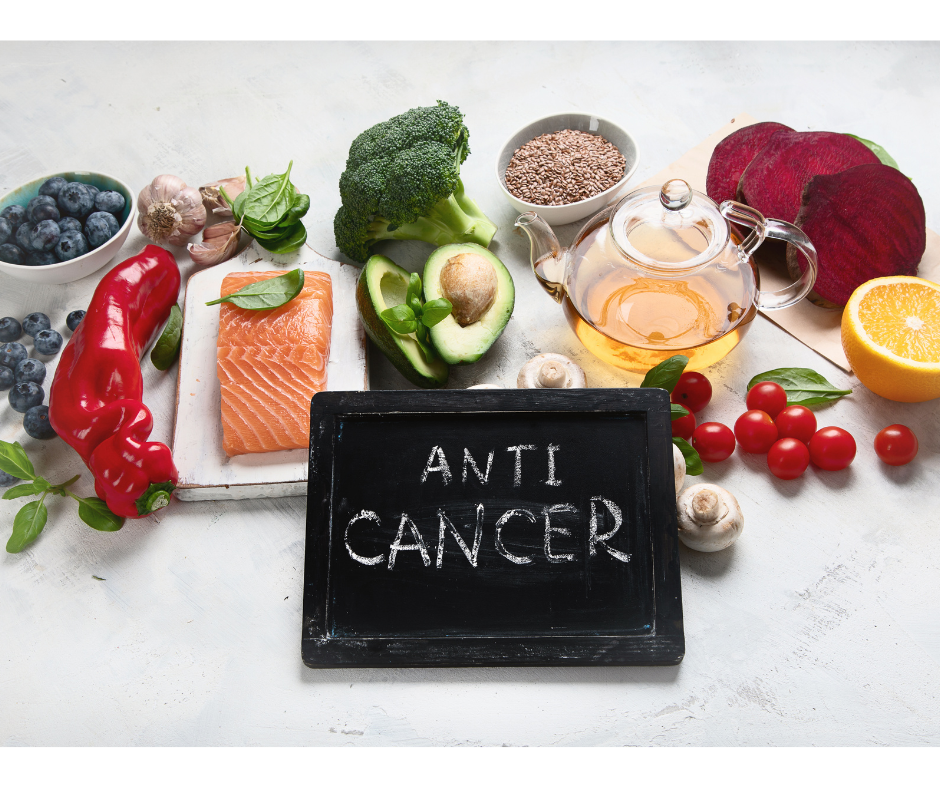Are there any foods that have been shown to protect against cancer?
The unlucky reality is “no.” You cannot halt the progression of it or eliminate your risk of developing cancer by eating a particular food. Eating well can lessen your chances of developing a condition, but it won’t prevent it entirely. However, the risk of developing chronic diseases like heart disease, diabetes, and it can be greatly impacted by what you eat.
In particular, cancer development has been shown to be heavily influenced by diet. Most of the foods on lists of “cancer-fighting foods” are plants high in phytochemicals, also known as phytonutrients. Eating a wide variety of plant foods can provide the greatest defense. And here we have listed 6 foods to eat to help prevent it.
These 6 Foods May Help Decrease Your Cancer Risk

1. Carrots
Carrots, one of the healthiest and most popular vegetables, are rich in nutrients that help prevent illness. Beta-carotene, an antioxidant found in them, may prevent toxicity to cell membranes and slow the proliferation of cancer cells, according to scientific research. To increase your intake and possibly reduce your risk of cancer, try adding carrots to your diet as a healthy snack or delicious side dish just a few times per week.
2. Broccoli
Sulforaphane is a plant compound found in broccoli and other cruciferous vegetables that has been shown to have potential anticancer effects in animal studies. Due to its antimicrobial and detoxifying effects, sulforaphane may help reduce cancer risk. Toxic substances (like cigarette smoke and other environmental pollutants) can be eliminated from the body with this compound. Some research suggests that eating broccoli as part of a healthy diet several times a week can help prevent it.
3. Garlic
Allicin, the active ingredient in garlic, has been shown in multiple studies to be effective at eliminating cancer cells. Research suggests that garlic lowers the risk of developing stomach, colon, esophageal, pancreatic, and breast cancers, and it is effective against a wide variety of bacteria, including H. pylori (the one linked to some ulcers and stomach cancer). Cloves are most effective when allowed to sit for 15–20 minutes after being peeled and chopped. The enzymes involved in this process are activated, and the protective compounds containing sulfur are released.
4. Tomatoes
Tomatoes’ rich red color comes from a compound called lycopene, which also gives them their cancer-fighting properties. Lycopene inhibits the growth of several other cancer cell types in vitro, including breast, lung, and endometrial cancer cells (in the lining of the uterus). Some scientists believe that lycopene’s immune-enhancing properties shield cells from damage that could eventually lead to it. Adding tomatoes to your daily diet in the form of sandwiches, salads, sauces, or pasta dishes is a great way to increase your consumption.
5. Berries
Berries have a lot of anthocyanins, which are plant pigments with antioxidant properties and are possibly linked to a lower risk of it. In addition, they have flavonoids, which inhibit a DNA-damaging enzyme that has been linked to lung cancer. Blackberries, blueberries, and cranberries are just a few examples of berries that you should try to incorporate into your diet on a daily basis. Blueberries are rich in the anti-inflammatory and antioxidant pigments known as anthocyanins.
6. Turmeric
One of the most well-known spices for the beneficial effects it has on one’s health is turmeric. Its active ingredient, curcumin, is an antioxidant that has been shown to be effective against cancer. Curcumin’s ability to inhibit an enzyme involved in cancer growth has led to promising results in the treatment of colon cancer. In addition, it has been shown to be effective in other studies by inhibiting the growth of lung, breast, and prostate cancer cells. The suggested daily intake of ground turmeric is 1/2 to 3 teaspoons (1-3 grams). To enhance its flavor, use it as a ground spice and combine it with black pepper to help your body absorb more of the spice.
Remember these suggestions before you head out to the store. They’ll help you streamline your shopping list and pick out more nutritious items once you get to the store. Do not complicate things with the food you serve. Healthy, delicious food can be prepared with a minimum of fuss and effort. Always check the food’s nutritional label before making a purchase.
Disclaimer: This is for informational purposes only.
Did you find this helpful? Let us know in the comments.
Source: Healthline
You can also visit our Facebook and YouTube pages to know more about plants and their health benefits.
You might also like:








